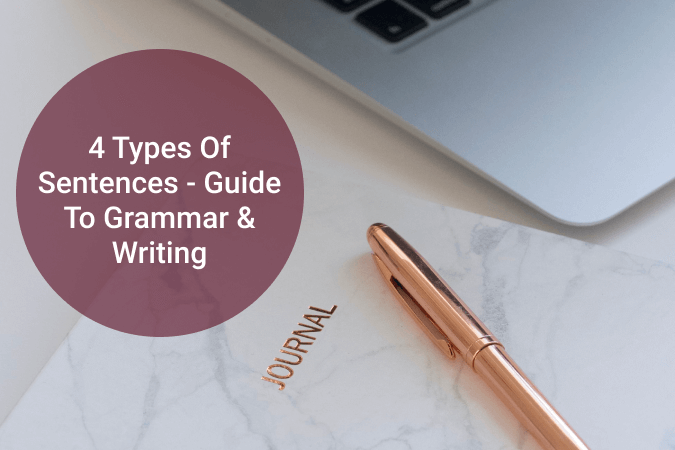The types of sentences in English

Proper academic writing is impossible without understanding the grammar structure of the language. Even if you are a native speaker, you need an in-depth understanding of the syntax and the types of sentences. They all are your tools to create any college paper.
Academic writing is more demanding than everyday speech. You will have to use longer sentences of different types, as the text can’t be monotonous in structure. Thus, a grammar textbook will be the best student’s friend. However, in some cases, you might need a quick reference with the concise exposition of the question. It is like this article that deals with types of sentences.
Takes only several minutes to get homework help and hire our experienced paper writers.
What are the main sentence types?
When we deal with the grammar structure of any language, we examine the structure and the goal of sentences. There are four types which you can use to compose any text on any topics:
- Declarative;
- Interrogative;
- Imperative;
- Exclamatory.
Further, we’ll deal with all these types in detail.
Declarative Sentences
It is an understandable informational sentence. Its goal is to make a statement about some object, event, or process, describe or explain it.
Declarative sentences make the most of any text. They are neutral, as a rule, so you can use them continually without the risk of overusing.
A declarative sentence has the direct word order:
- The subject (usually a noun or a pronoun) comes first;
- The predicated (a verb) comes next.
This order remains the same for the declarative sentences always, no matter is they are positive or negative by meaning. At the end we put a period:
e.g., I like this story. I don’t like this idea.
Interrogative Sentences
It is the question with the goal is to ask for some information. Interrogative sentences have an identification symbol – a question mark – it is their obligatory feature. Another sign is the word order: the verb comes first, and the subject comes next.
There are several methods to form the interrogative sentence:
1. With the help of a question word at the very beginning of the sentence:
e.g., What is your favorite song?
Why did you miss the party?
2. With the auxiliary verb. In this type you put it before the subject:
e.g., Did you see that painting earlier?
3. With the “question fragment” that you put at the end of declarative sentences. In this case, it keeps the direct order of words, but the “tail” changes the type. You need the question mark here.
e.g., We all like this dish, don’t we?
You can find other variations. For instance, there are sentences with the direct word order and a question mark at the end. They possess an interrogative intonation too. However, this variant is not for academic writing, and you should avoid it.
Imperative Sentences
Imperative sentences are mostly defined as commands, but they can express more shades of meaning. You can use them to warn, to suggest, to ask, or to recommend something.
There is a standard sentence structure for this type. An imperative sentence does not have a subject. At the end there is a period or an exclamatory mark:
e.g., Refer to the article below.
Stay away from that place!
Exclamatory Sentences
These sentences are defined by intonation in the speech. The goal of exclamatory sentences is to show emotions. In writing, you can recognize them by the specific word order and the exclamation mark at the end.
The word order is:
The question word (How/What) + the adjective/noun with the meaning of definition + the subject + the predicate (verb).
But please note that this structure might miss some of these elements. Exclamatory sentences are a mark of everyday speech or creative style. Hence, their structure is less strict.
e.g., How great that exhibition was!
What a fantastic sunny weather!
Collect all features in one review
| Type | Goal | Word Order | Tone | Ending punctuation |
| Declarative sentence | Inform or make a statement | Subject + Verb | Neutral | Period |
| Interrogative sentence | Ask a question | Verb + Subject | Mostly neutral | Question mark |
| Imperative sentence | Demand | No subject + Verb | Neutral or emotional | Period or exclamation mark |
| Exclamatory sentence | Express emotions | How/What + Noun/Adjective + subject + Verb | Emotional | Exclamation mark |
How to make your text more accomplished
Usage of different sentence types is necessary for composing a decent text. Academic writing uses declarative and some interrogative constructions. An imperative sentence is rarer there. Exclamatory ones suit some kinds of papers where you have to express more emotions.
- Combine longer and shorter sentences for better text dynamics.
- Always read your texts aloud on completion to hear how it sounds.
- Don’t overuse exclamations – they are useful as accents only!
And if you need more help with your writing or grammar – contact us at any time.






